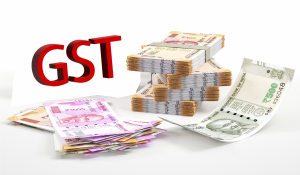 The Group of Ministers (GoM) on Rate Rationalisation is expected to submit an interim report to the Goods and Services Tax (GST) Council at its June meeting, sources told CNBC-TV18 on Tuesday.
The Group of Ministers (GoM) on Rate Rationalisation is expected to submit an interim report to the Goods and Services Tax (GST) Council at its June meeting, sources told CNBC-TV18 on Tuesday.
The interim report is expected to state that “any decision made by the GST Council must take public perception into account”. This will necessitate careful consideration, with sensitive items kept in mind, sources in the know told CNBC-TV18.
Exemptions on sensitive items such as hearing aids, educational institutions, bread, incense sticks, utensils, tractors, and agri-related machinery should be maintained, the official added.
The inverted duty on tailoring and other textile job works will be increased from 5 percent to 12 percent, the source suggested.
The GoM is likely to propose that GST exemptions be reviewed and that commodities be re-fitted based on more appropriate rates, such as:
- Unroasted coffee beans, unprocessed green leaves of tea, wheat bran, de-oiled rice bran at 5 percent.
- Withdraw exemptions from cheques — loose or in book form — and impose 18 percent tax.
- Withdraw the lower-rate exemptions for e-waste, which will be raised from 5 percent to 18 percent.
- Withdraw the 5 percent rate reduction for goods related to petroleum and coal bed methane.
- Renewal of exempted insurance schemes.
- Transport of passengers in business class from airports located in northeastern states.
- Transportation of newspapers, magazines, railway equipment by rail/vessel/road.
- RBI services.
- Services by IRDA to insurers.
- Services provided by SEBI.
- Services by way of registration/ licensing supplied by FSSAI to Food business operators.
- Services by GSTN to Govt.
Additionally, the exemption for cord blood banks will be revoked. If the daily rent is more than Rs 5,000 per day, and if the monthly rent more than Rs 2,500, religious places intended for the general public can be rented, sources said.
Source: CNBC TV18
https://www.cnbctv18.com/finance/gst-group-of-ministers-likely-to-submit-an-interim-report-on-rate-rationalisation-at-next-meet-13892322.htm
For more News like this, Subscribe TAXO today


